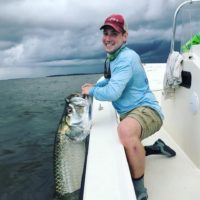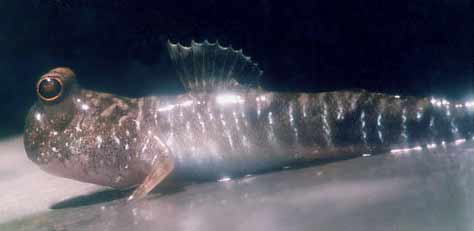Amphibious fish are those that use a range of terrestrial locomotory modes, such as lateral undulation, tripod-like walking (using paired fins and tail), and jumping.
A wide diversity of fishes exhibit amphibious behaviors for a variety of reasons. However, it is unknown how most amphibious fishes orient in terrestrial environments. Furthermore, while there has been some research into why fish emerge onto land, motivations for emersion can differ between species and data is deficient for many. Dr. Noah Bressman, Assistant Professor of Physiology at Salisbury University, will help us to better understand this behavior through his research into the senses and cues mangrove rivulus (Kryptolebias marmoratus) and walking catfish (Clarias batrachus) use to orient in terrestrial environments, describe the conditions that encourage emersion in northern snakehead (Channa argus) and walking catfish, and describe the terrestrial locomotor behaviors of northern snakeheads and Neotropical suckermouth catfishes (Loricariidae).
Dr. Noah Bressman is an Assistant Professor of Physiology at Salisbury University. With a background in marine and organismal biology, his research is highly interdisciplinary and collaborative. Dr. Bressman’s research mainly focuses on the amphibious behaviors of invasive fish species, such as Northern Snakeheads and Walking Catfish, investigating why they emerge onto land, how they move around and survive on land, and where they go/how they orient on land. He is also collaborating with the Maryland Department of Natural Resources, Delaware Department of Natural Resources and Environmental Control, and USGS to investigate the health, biology, and ecology of recreationally-important and/or invasive fish species, such as Blue Catfish and Northern Snakehead. In addition to being a scientist, Dr. Bressman is an avid science communicator, using biological art as a tool for science communication, creating TED-Ed lessons, and writing scientific blogs for a variety of journals, scientific societies, and shows. When not researching fish, Dr. Bressman is competitive fisherman on a mission to catch every species of fish – currently at 447!



